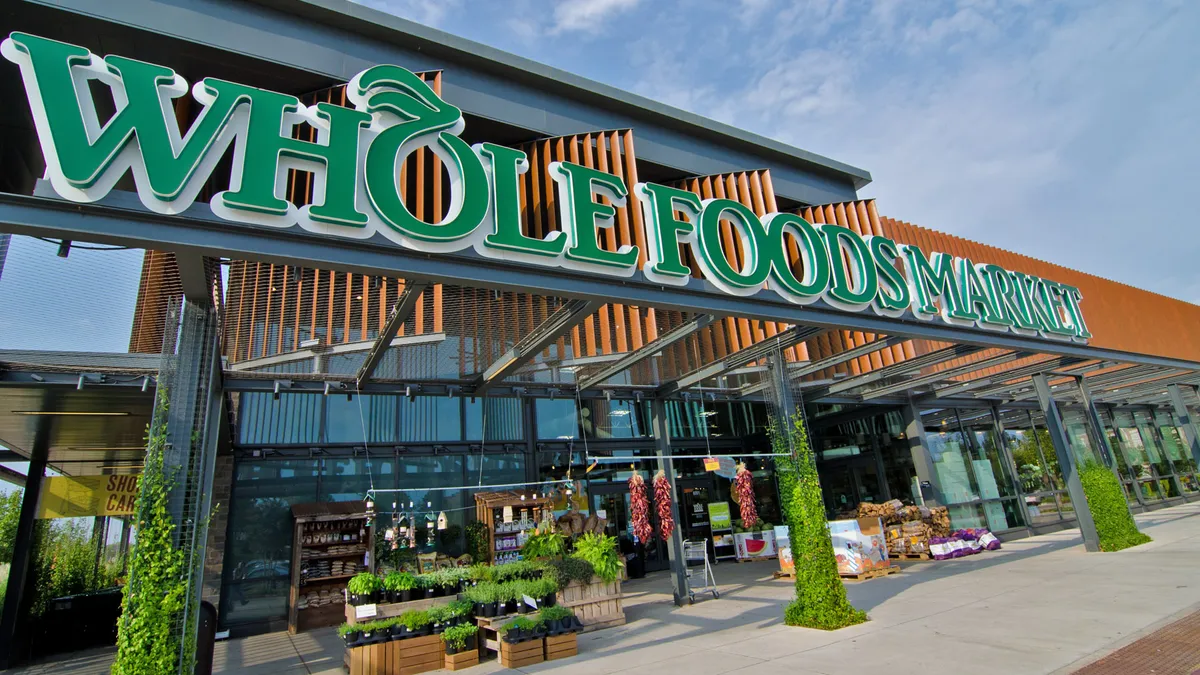Dive Brief:
- Mashable reports that Amazon's recent $13.7 billion purchase of Whole Foods Markets could make the grocery industry more digital and customer-central.
- Before the Whole Foods acquisition, Amazon was entering the grocery market with Amazon Fresh, an online food-buying experience, and Amazon Go, a prototype cashier-less grocer based in Seattle.
- Mashable says Amazon's purchase of Whole Foods will force other grocery chains, such as Safeway and Kroger, to make steep staff cuts and digitize grocery-buying. Amazon also will have other grocers developing employees to be more knowledgeable about the merchandise and therefore more helpful to customers in the Whole Foods model.
Dive Insight:
Whole Foods is an upscale retail chain catering to affluent consumers whose business model Amazon might not want to change. Average grocery chains like Safeway and Kroger have a broader consumer base that they don't want to lose to a Whole Foods model.
One concern shared among experts is that the acquisition could signal a sudden, intense desire for automation in the industry, as Amazon is well-known for its willingness to digitally innovate on the fly. Low-wage earners could be automated away with digital kiosks and the like. But like most industries facing this dilemma right now, that shift means the focus may be placed on hiring for customer service skills, so not all jobs would disappear overnight.
Like any buyer, Amazon stands to inherit its acquired company's problems. Whole Foods was cited last December for denying workers bonuses they earned. In early June, an appeals court overturned the store's ban on employees' recording communication in the workplace. The bonus case, in which Whole Foods allegedly shifted labor costs to avoid paying bonuses, hasn't been settled. But the charge could cost the retailer — and ultimately Amazon — $200 million in damages, back pay and other penalties if it loses the case.













